2024 SDG 16 English
- 16.2.1 Elected representation
- 16.2.2 Students’ union
- 16.2.3 Identify and engage with local stakeholders
- 16.2.4 Participatory bodies for stakeholder engagement
- 16.2.5 University principles on corruption and bribery
- 16.2.6 Academic freedom policy
- 16.2.7 Publish financial data
- 16.3.1 Provide expert advice to government
- 16.3.2 Policy- and lawmakers outreach and education
- 16.3.3 Participation in government research
- 16.3.4 Neutral platform to discuss issues
- 16.4.1 Number of graduates from law and enforcement related courses
16.2.1 Elected representation
The university’s governance is based on the “Measures for Selecting Representatives of National Taiwan Normal University University Affairs Meeting.” Representative elections are held regularly and in accordance with the procedures to nominate teachers, students, staff, researchers, and other representatives to manage the university affairs. There are 23 legal representatives, 78 teacher representatives are one-tenth of the total number of teachers, 13 student representatives are one-tenth of the council representatives, and 4 staff members. The list of representatives and the lists of each committee are announced on the NTNU Office of Human Resources official website.
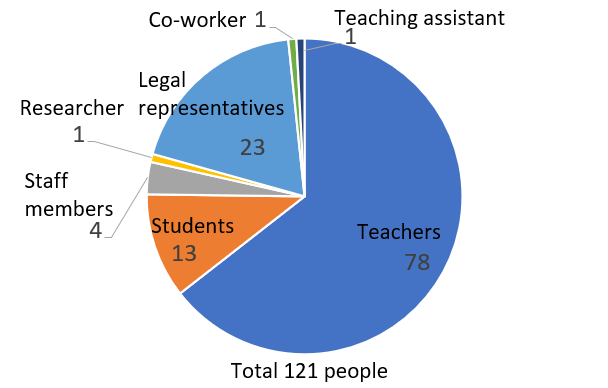
16.2.2 Students’ union
Article 54 of the “National Taiwan Normal University Organizational Regulations” clearly stipulates that to cultivate students’ autonomy and the concept of the rule of law and to ensure students’ participation in matters related to their study, life, and rights at school, the University should guide students to establish the Autonomous Association (hereinafter referred to as the Student Union) by democratic procedures. The Student Union is composed of all university students.
The highest autonomous organization of students is the National Taiwan Normal University Student Union, which has established the National Taiwan Normal University Student Union Constitution. Its purpose is to cultivate students’ self-governance and democratic concepts, promote student rights on campus, and actively participate in social issues to pursue a co-prosperity between the University and Taiwanese society. The Student Union has a Facebook fan page to post its information and announcements.
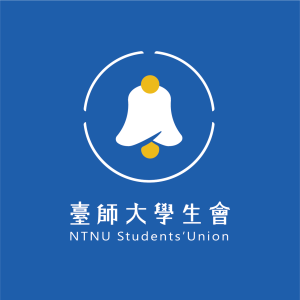
- Providing governance input
The students’ union holds the University Affairs Exchange Forum every year, inviting students who have ideas about school affairs to express their opinions to the principal and department heads. This forum aims to improve the campus environment and promote the implementation of various university policies.
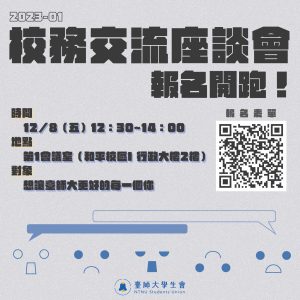
- Providing Support for Students
The Student Union attaches great importance to students’ mental health issues. Since 2022, it has been advocating for a policy allowing students to apply for “Mental Health Day,” it was officially approved in 2023. Students can apply for mental health days due to psychological or mental discomfort without providing supporting documents, help students solve problems and adjust to difficulties. The Student Union also co-hosts forums on Mental Health Day to raise awareness and promote the importance of mental health among students.
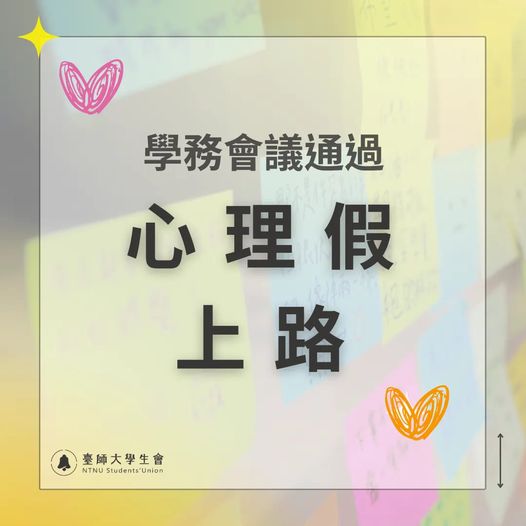
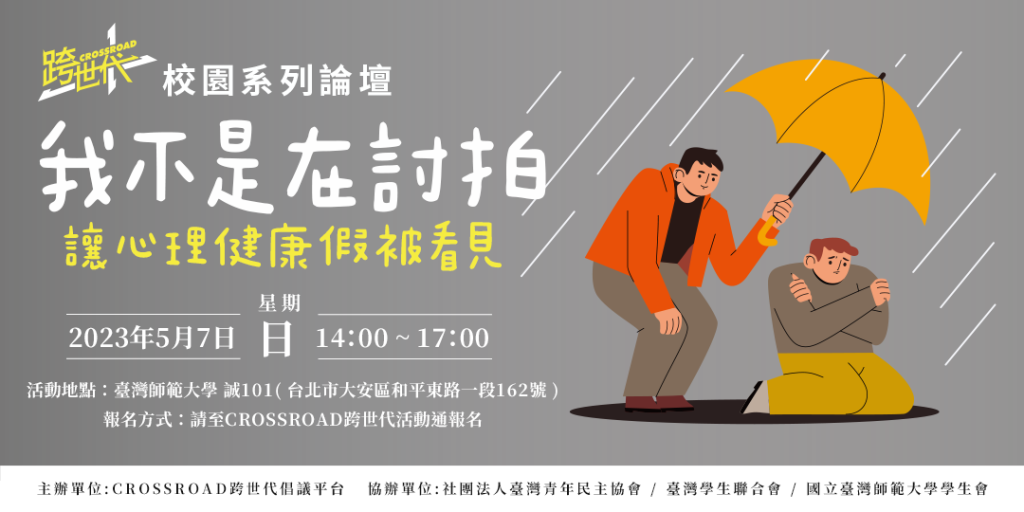
- Providing Social activities
The Students Union actively engages in social issues, organizing and promoting related activities to provide students with opportunities to participate in societal events. For example, it participated in the 21st Taiwan LGBTQ+ Pride Parade, inviting all students to join and encouraging interaction with diverse groups and issues. During the Taiwan Presidential Election period, the Students Union promoted the “2024 Presidential Election Youth Forum,” inviting presidential candidates from various parties to focus on youth policies and providing a platform for students and young people to voice their concerns.
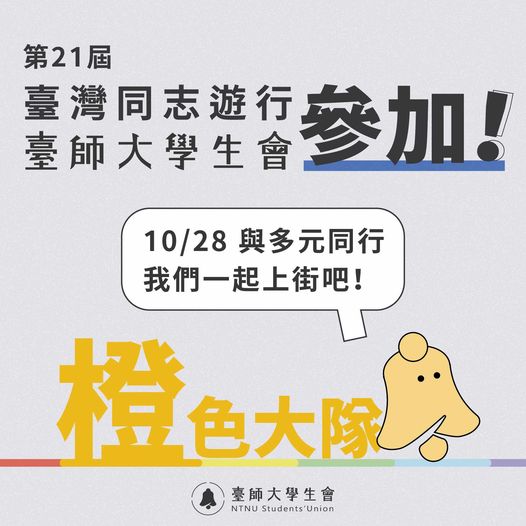
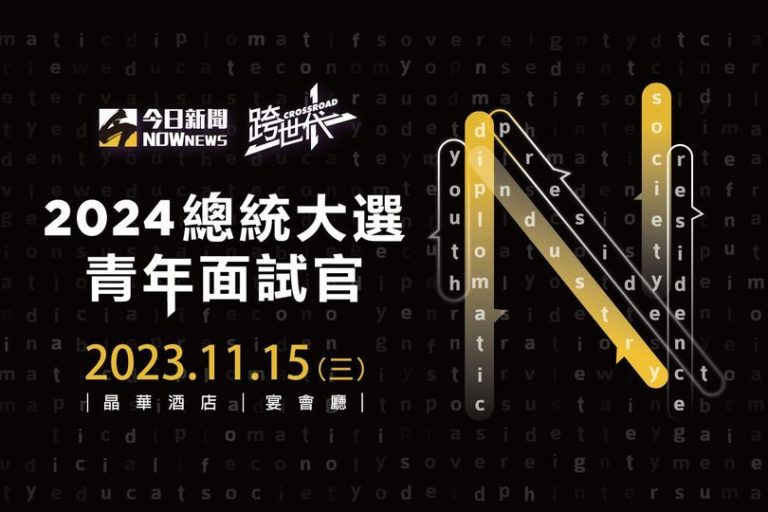
16.2.3 Identify and engage with local stakeholders
The NTNU has established various regulations to identify and engage with local stakeholders. The “National Taiwan Normal University Industry-Academia Cooperation Implementation Guidelines” outlines the procedures for industry-academia collaboration with government agencies, businesses, non-profit organizations, and academic research institutions. The “National Taiwan Normal University Innovation and Incubation Center Establishment Guidelines” is primarily responsible for managing the entry of companies, maintaining software and hardware development facilities, and introducing government support and subsidies to promote industry-academia cooperation with stakeholders. The “National Taiwan Normal University Guidelines for Promoting Community Co-prosperity” also aims to connect with local neighborhoods and business districts surrounding the campus. The university seeks to build consensus and jointly create a healthy, safe, and friendly living environment through campus involvement, public participation, communication platforms, and community interaction.
List of activities between our university and community in 2023
Activity name | Number of participants | |
1 | Visit the new district director and discuss cooperation matters. | 10 |
2 | Have dinner conversations with representatives of the surrounding communities, councilors, neighborhood chiefs and business district representatives. | 40 |
3 | Send school activities, speeches, and seminars to the neighborhood representatives every week. | 10 |
4 | 6/5 School Anniversary Ceremony and Distinguished Alumni Master Salon Lecture Event. | 20 |
5 | Contact surrounding businesses and student clubs for cooperation matters. | 10 |
6 | Send information about School of Continuing Education courses to neighborhood representatives, to help promote and invite residents to participate. | 10 |
7 | Participate in the Food Farmers Education Project-Food Day activities organized by Sustainable Development Office. | 70 |
8 | 150 | |
9 | Help inform the General Affairs Office of the public’s suggestions for energy conservation. | 5 |
16.2.4 Participatory bodies for stakeholder engagement
1. The University has several mechanisms to allow local stakeholders to participate in university decision-making. For example, the “Key points for setting up the campus landscape planning team of National Taiwan Normal University”, clearly describes the procedures to select and engage stakeholders and the process of participating in decision-making. According to the “National Taiwan Normal University Curriculum Committee Guidelines,” the University Curriculum Committee Committee must include representatives outside of NTNU, such as alumni, industry professionals, or external academic experts to work with teachers and student representatives, to set the University curriculum goals and development directions. Additionally, the selection of the university president follows the “National Taiwan Normal University President Selection Organization and Operations Regulations,” which requires the inclusion of alumni representatives, impartial public figures, and representatives appointed by the Ministry of Education to ensure fairness and transparency in the selection process.
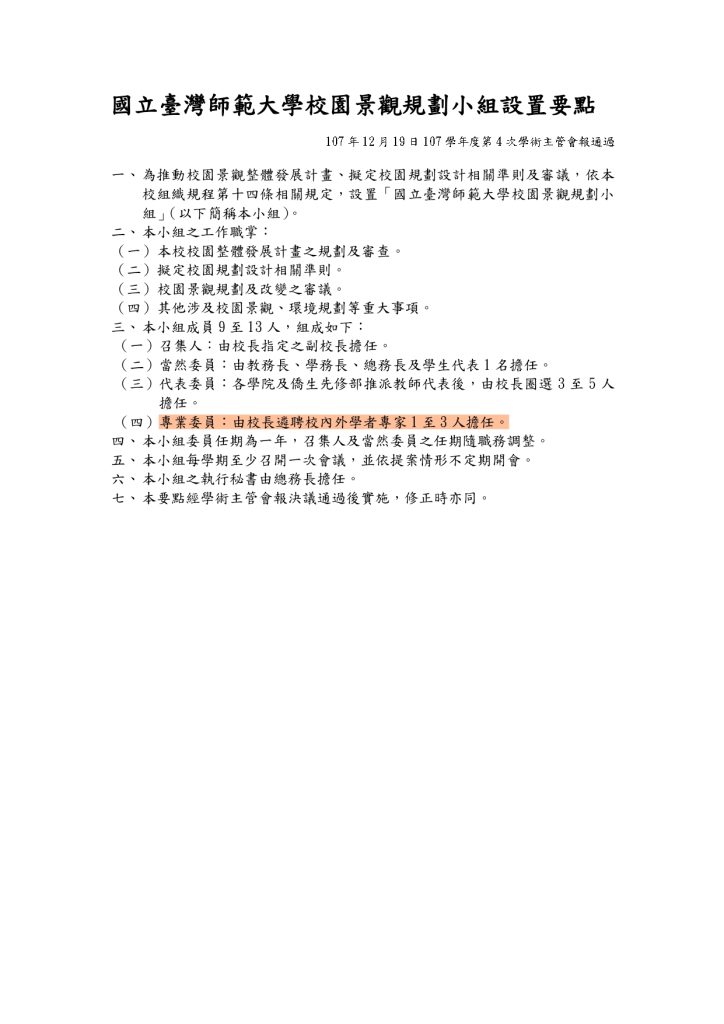

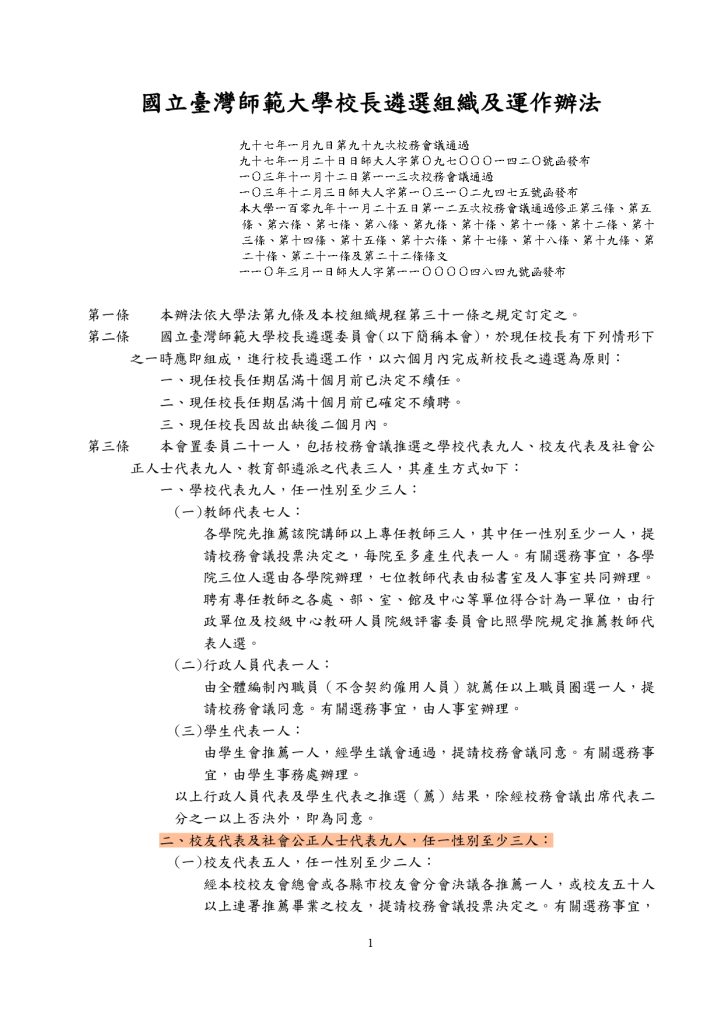
2. The alumni have formed the National Taiwan Normal University Alumni Association, with 17 chapters across various regions in Taiwan and abroad. The University also has an Alumni Center with different activities and programs to strengthen communication between the University and alums.
3. One of the main functions of the University’s Innovation&Incubation Center is “business incubation,” which provides support for small and medium-sized enterprises (SMEs) to set up operations on campus. Over the years, the center has nurtured 52 incubation companies and 21 startup companies, with nearly 30 incubation companies graduating. It has assisted companies in obtaining dozens of government grants and project loans, accumulated 24 patent achievements, and helped companies secure venture capital and increase investment, reaching NT$600 million.
One of the resident companies, Fan Yu Technology Education Company, has developed engaging and structured astronomy courses centered around the celestial sphere. Their “FUNSKY” 3D celestial globe, which has received U.S. and international patents, is also applied in Indigenous science education. This initiative connects valuable resources from schools and industries to support NTNU’s research innovation and social responsibility.
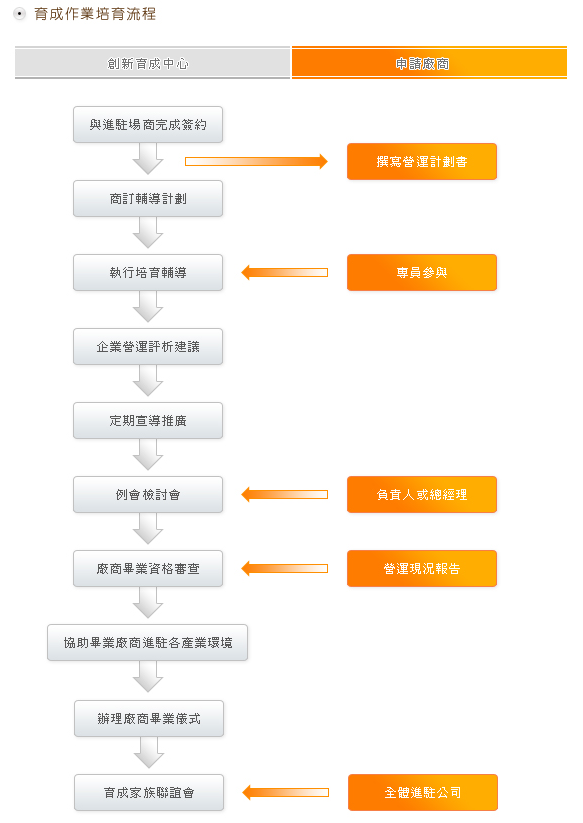
Innovation&Incubation Center business incubation process
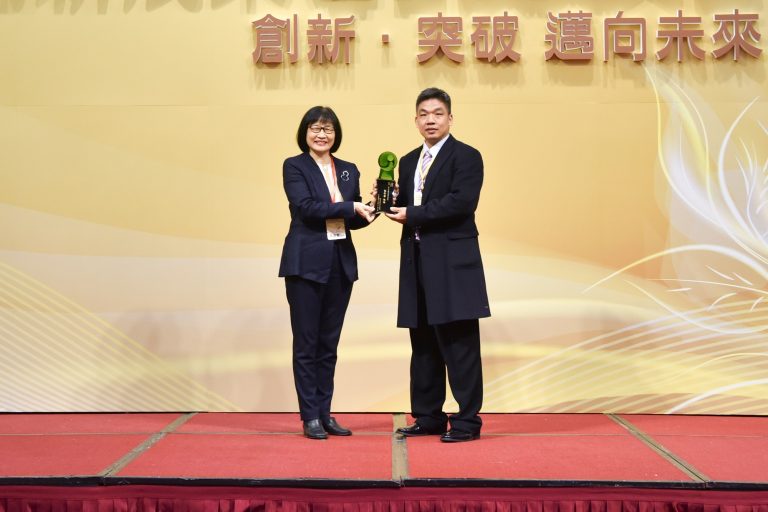
16.2.5 University principles on corruption and bribery
1. The University’s website has a dedicated section on Administrative Neutrality and Conflict of Interest Avoidance. This section ensures staff comply with regulations such as the Civil Servants Administrative Neutrality Act, the Ethical Guidelines for Civil Servants, and so on. These regulations ensure staff execute their duties impartially and maintain political neutrality. They also prevent corruption and the improper transfer of benefits.
2. The University has established an internal control system and formulated the “National Taiwan Normal University Risk Management Promotion Guidelines. ” It also publishes the implementation of internal control and auditing every year. This review reviews the execution of various operational procedures within departments and offers recommendations for improvement.
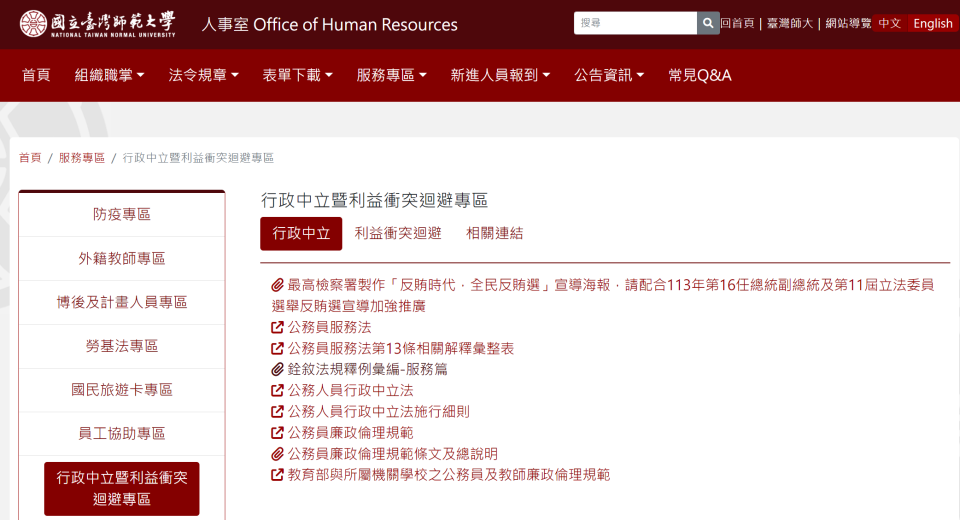
16.2.6 Academic freedom policy
Article 4 of the “National Taiwan Normal University Organizational Regulations” stipulates that the University shall engage in teaching, research, and extension services under the principle of respecting academic freedom. The University has also established the “National Taiwan Normal University Academic Ethics and Integrity Guidelines,” which aim to promote academic ethics and integrity on campus.
In alignment with academic freedom, university autonomy, and professional independence, the University has formulated the “Code of Professional Ethics for Teachers.” This code clearly outlines respect for academic freedom and democratic procedures and works to build a high-quality academic community where research, teaching, and service complement one another.
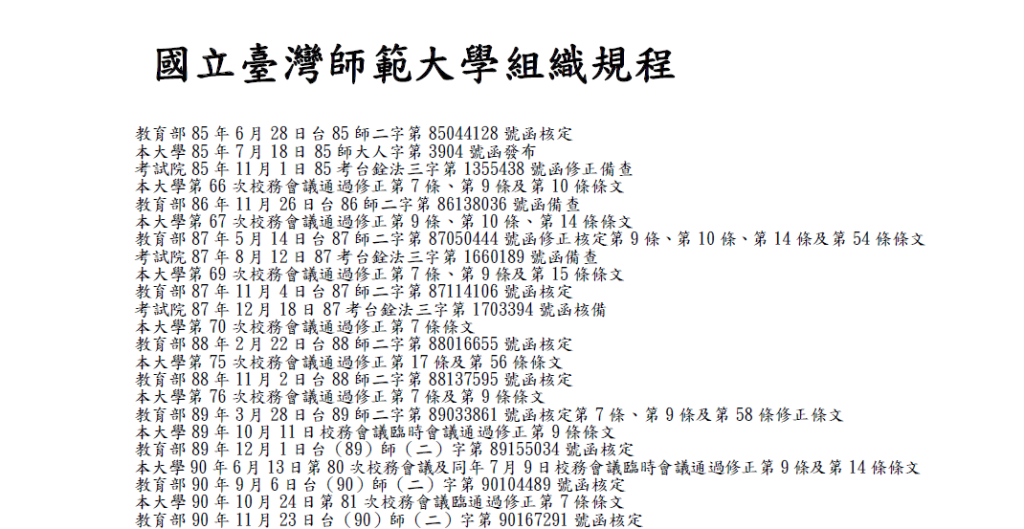

Article 4 of the university’s organizational regulations stipulates the principle of respecting academic freedom.
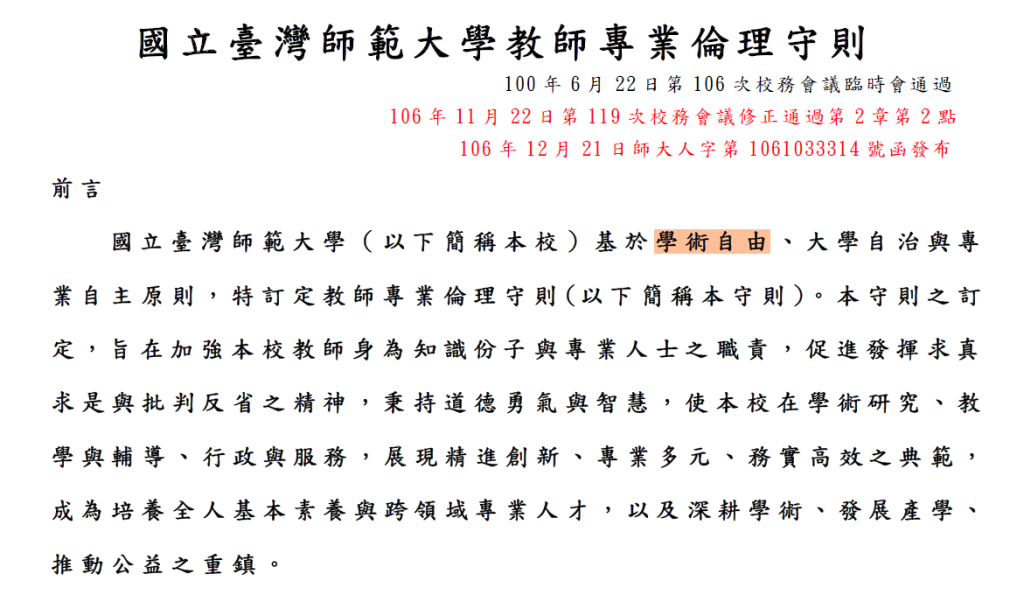

NTNU “Code of Professional Ethics for Teachers” respects teachers’ academic freedom.
16.2.7 Publish financial data
The university has established a dedicated section for the disclosure of university affairs and financial information, which publishes financial planning reports, financial data analysis, university funds performance, fund changes and expenditure purposes, etc. Additionally, more detailed financial information is available on the Accounting Office website, demonstrating its clear financial flow and financial status.
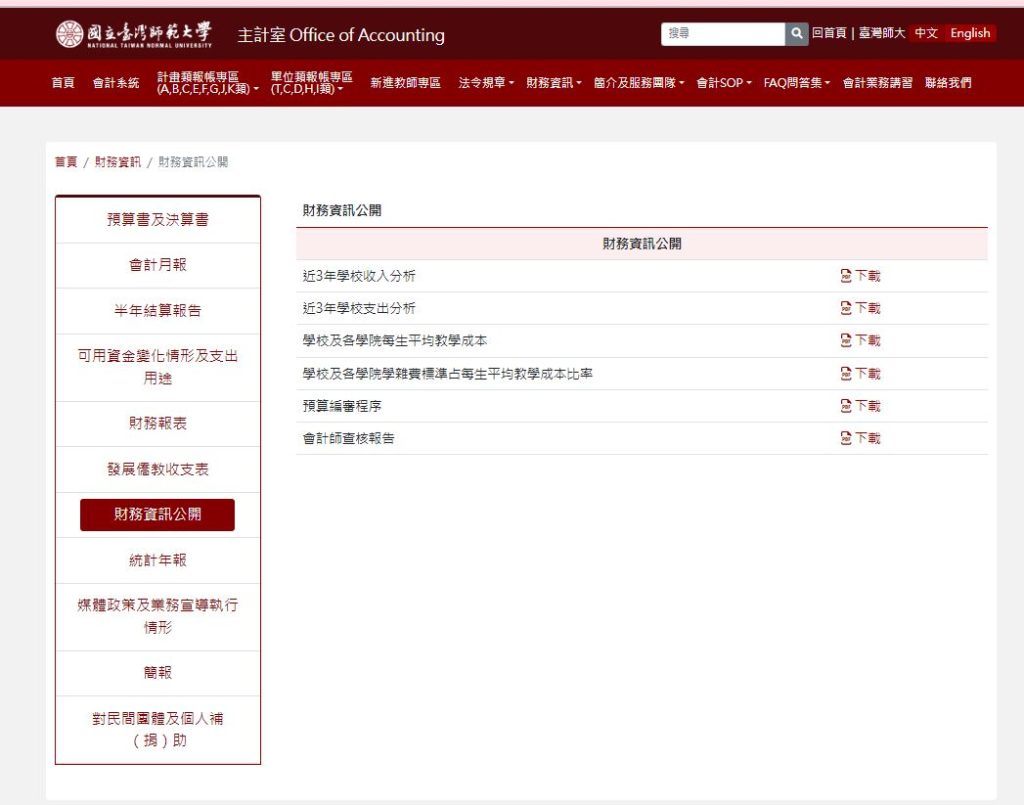
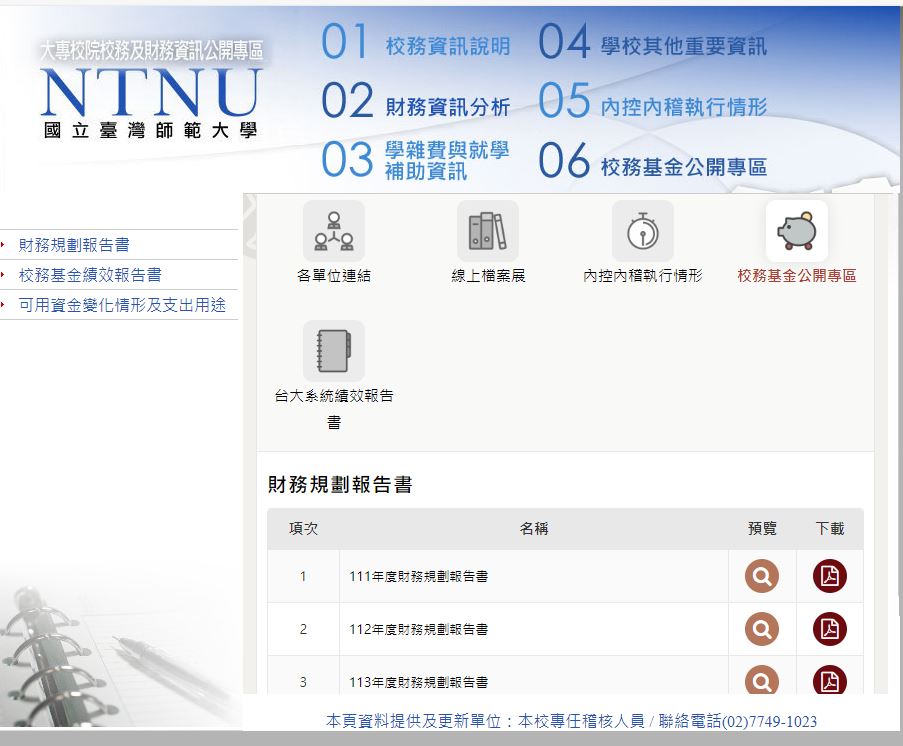
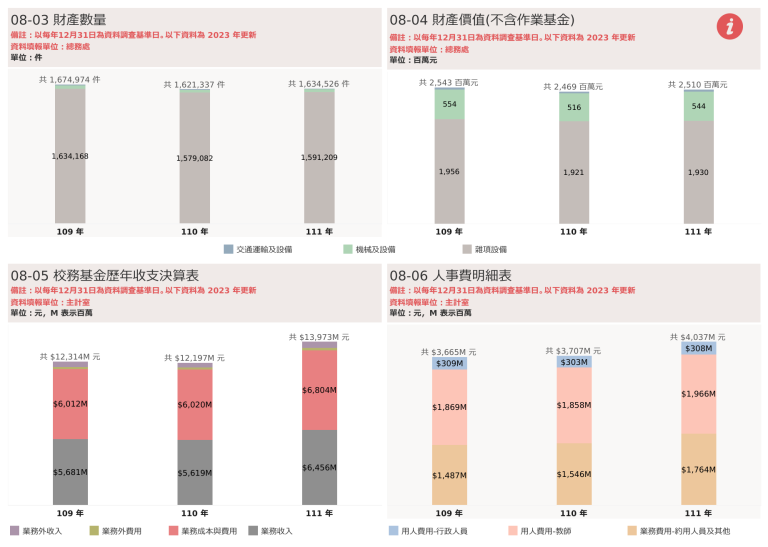
16.3.1 Provide expert advice to government
1. The university’s research faculty are often consulted on government policies and provide specific expert advice to the government. For instance, Professor Hong from the Department of Special Education is a member of the Ministry of Education’s Special Education Advisory Committee. Professor Chang, Professor Ye, and Professor Wang from the Graduate Institute of Sustainable Management and Environmental Education are committee members for the “2024 Smart Climate-Friendly Campus Pilot Project.” Additionally, Professor Wang from the Department of Educational Psychology and Counseling serves as a member of the Ministry of Education’s Student Counseling Advisory Committee.
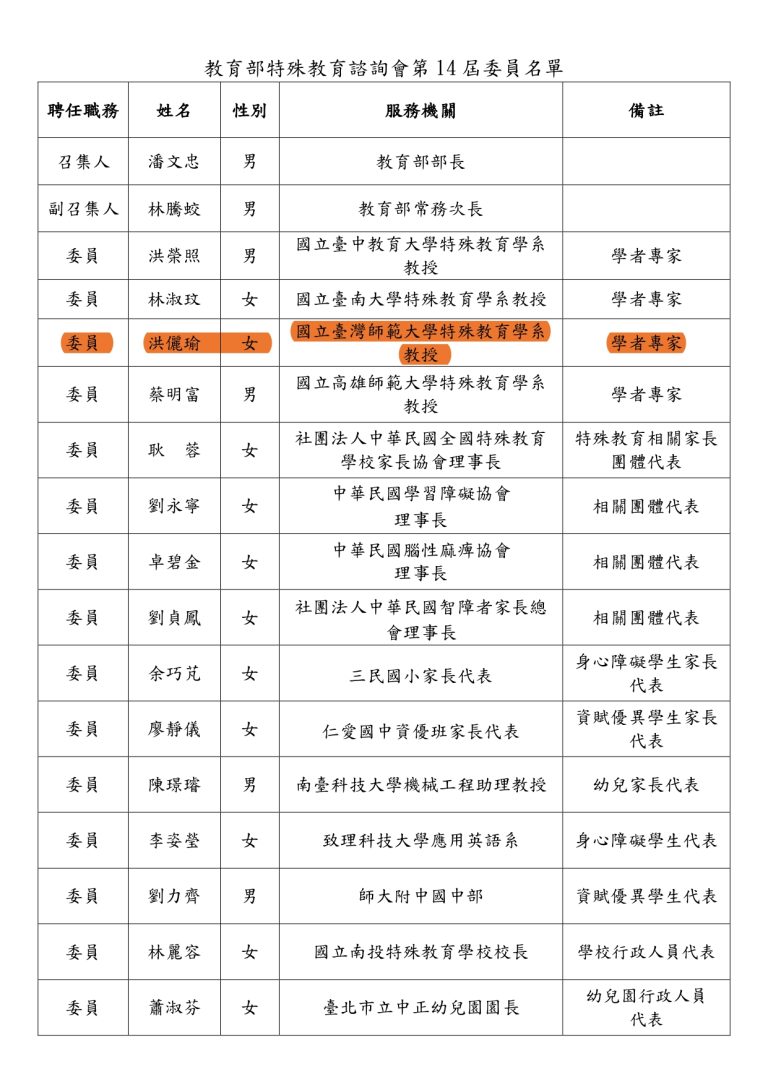
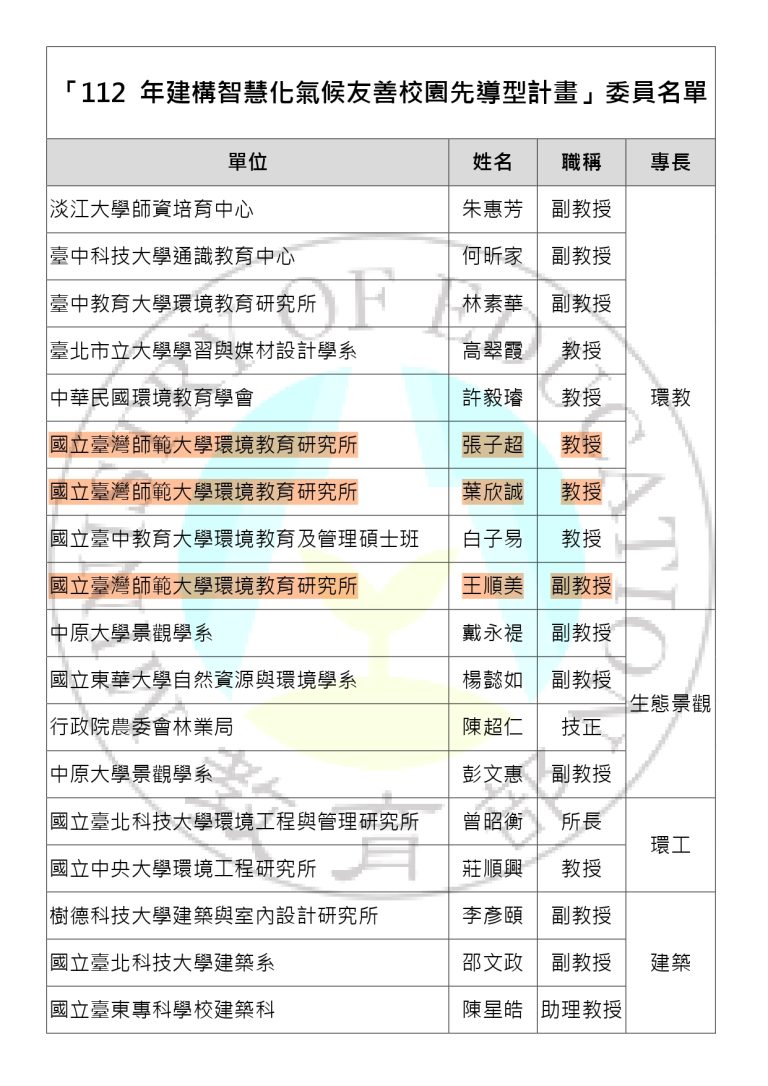
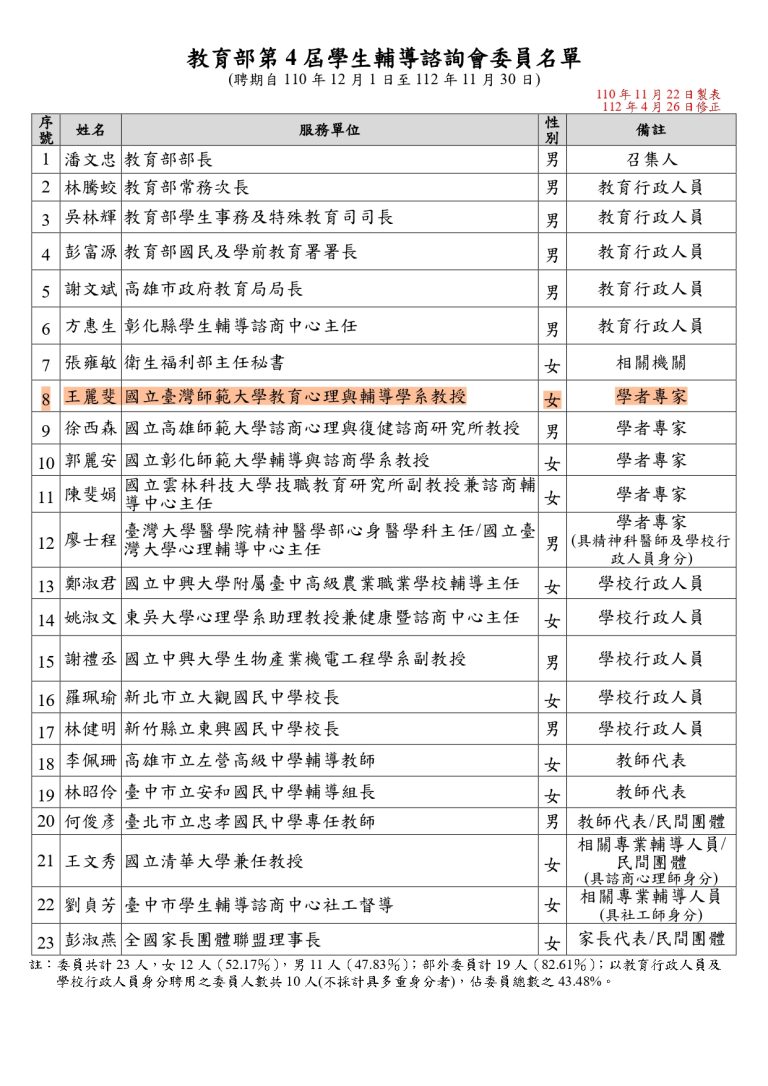
2. Professor Lin from the Family Research and Development Center has been appointed by the Ministry of Agriculture as the editor of the “Food and Agricultural Education Curriculum Series Handbook,” which was officially launched in 2023. This handbook contains food and agriculture education courses at all levels based on agriculture-related development and sustainability perspectives, providing a reference for teachers and schools.
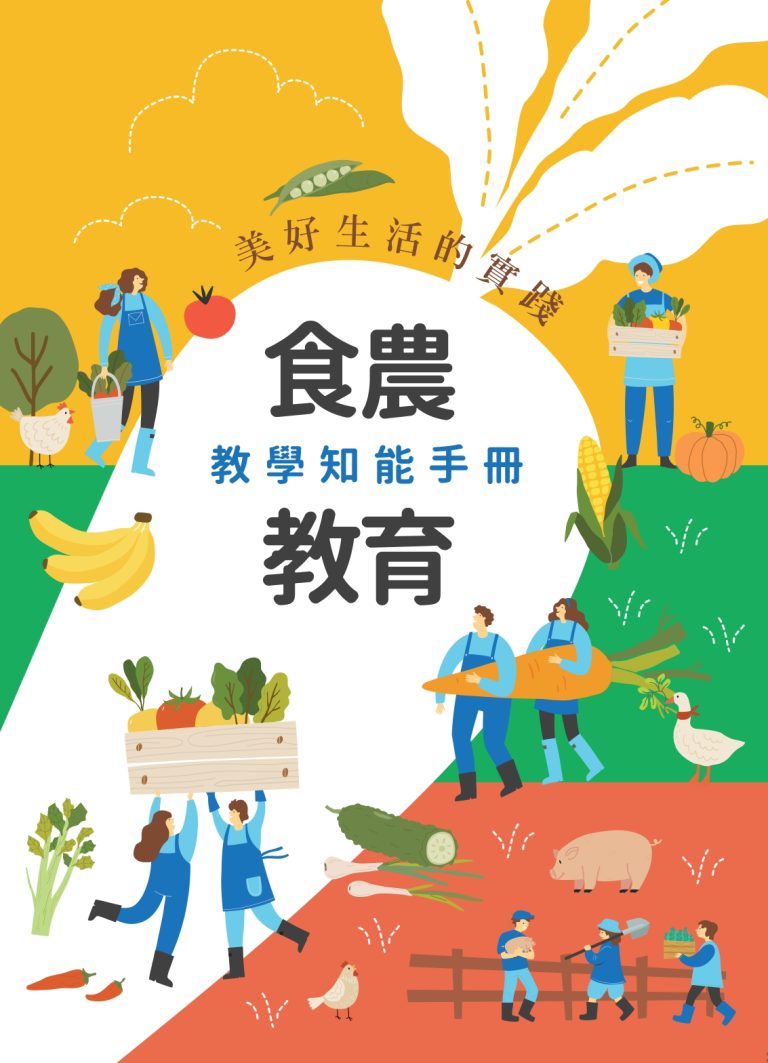
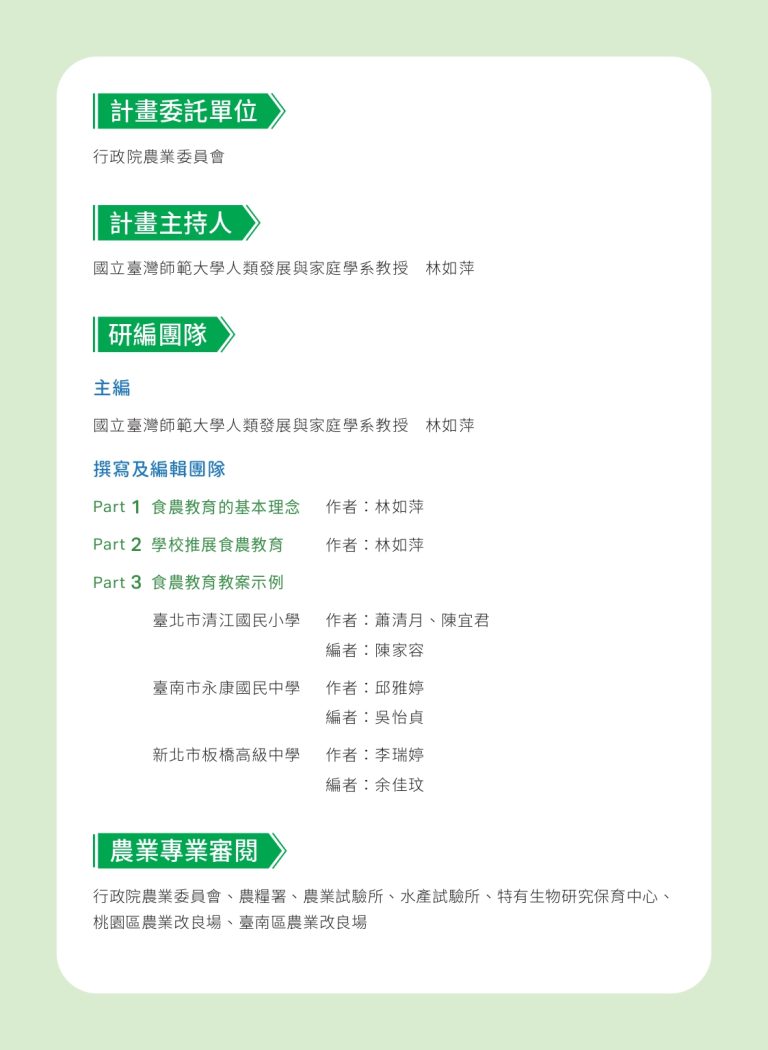
16.3.2 Policy- and lawmakers outreach and education
In the 2022-2023 academic year, the Graduate Institute of Educational Policy and Administration, Department and Graduate Institute of East Asian Studies, and Graduate Institute of Sustainable Management and Environmental Education offered 47 related courses. These courses cover educational policy research, sustainable management research, and East Asian politics and economics. The course lists have more details.
16.3.3 Participation in government research
NTNU has a long-standing history of research collaboration with government agencies, providing academic and technical support for research and development. Government partners include the Ministry of Education’s K-12 Education Administration, the Taipei City Government’s Department of Sports, the Ministry of Foreign Affairs, and the Ministry of Culture. In 2023, NTNU collaborated with government agencies on 572 public sector research projects, contributing to policy formulation and implementation, with research funding totaling over NT$2.14 billion. The 2023 statistics on projects from government agencies have more details.
The Research Center for Psychological and Educational Testing (RCPET) collaborates with the Ministry of Education to provide guidance and consultation on testing as a national research center and one of the few testing centers in Taiwan focusing on research and development of psychological testing. Since 1998, the RCPET has been commissioned by the Ministry of Education (MOE) to develop test items for the Basic Competence Test for Junior High School Students. It also creates and promotes psychological and educational testing techniques and related tools.

16.3.4 Neutral platform to discuss issues
1. The University’s Facebook community, “NTNU師大人交流板,” serves as an open space for NTNU students and the community to exchange information freely. There are no restrictions on political expression, commercial activities, or logical debates. The types of posts, content, and the author’s identity are not regulated, allowing for a vast scope of freedom.
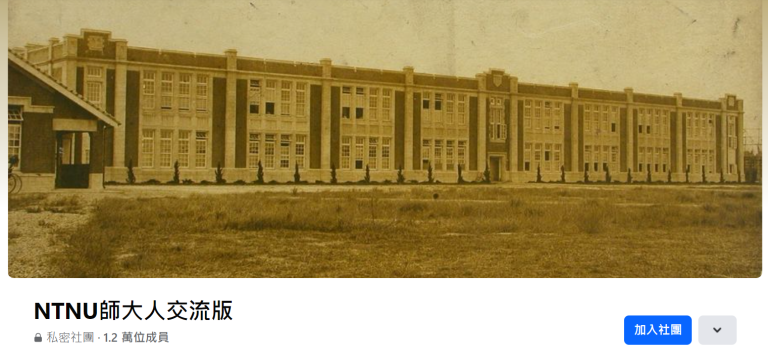
2. The Honors College establishes a learning platform that promotes more group discussions and interactions through living spaces, college activities, and course planning. This environment allows students’ passion and dreams to be sparked and inspired through exchanges, fostering creativity and innovative ideas. Each semester, the college hosts a formal “High Table Dinner,” inspired by the traditional long-table dinners of Oxford and Cambridge universities. That is an important social event where distinguished individuals from various fields are invited to share their experiences and dine with the students, engaging in meaningful conversations.
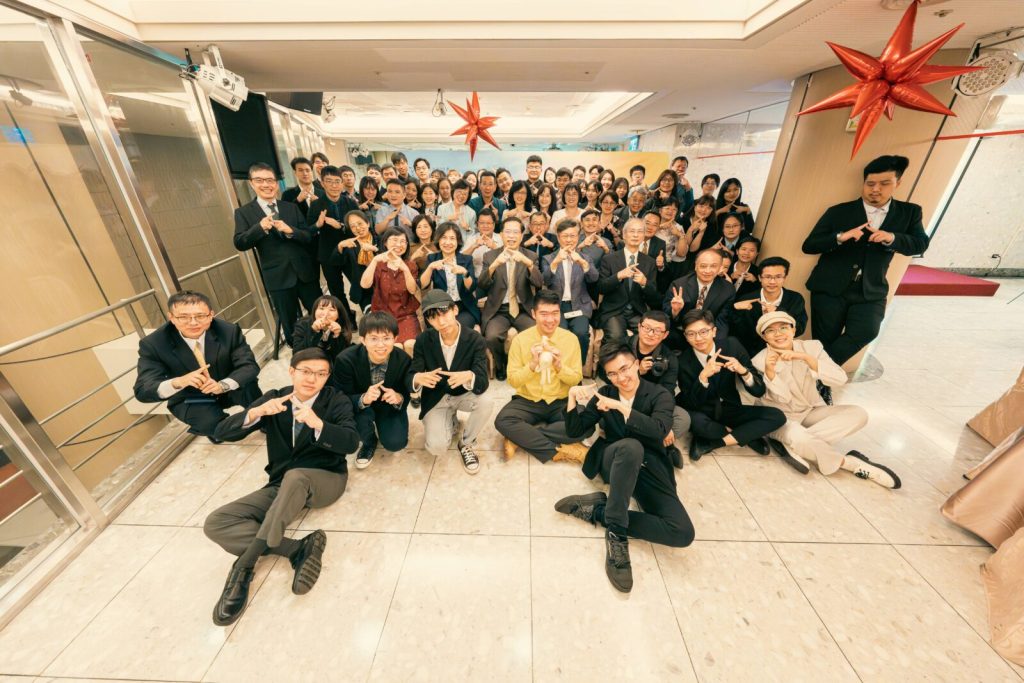
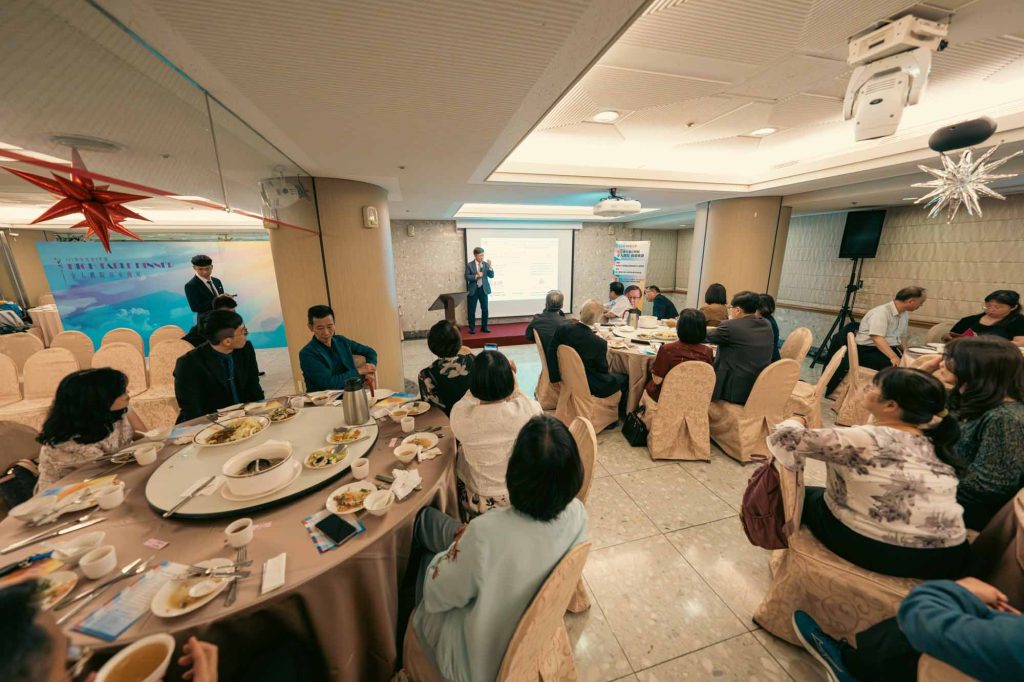
16.4.1 Number of graduates from law and enforcement related courses
In the 2022-2023 academic year, the total number of graduates at the bachelor’s, master’s, and doctoral levels was 3,605. Among them, 227 graduates were from departments related to law and political science, accounting for approximately 6.30% of the total, detailed as follows:
- The total number of bachelor’s graduates was 1,776, with 125 graduates from law and political science-related departments.
- The total number of graduate-level graduates was 1,829, including 1,660 master’s and 169 doctoral graduates. Of these, 102 were from law and political science-related departments, with 83 master’s and 19 doctoral graduates.

